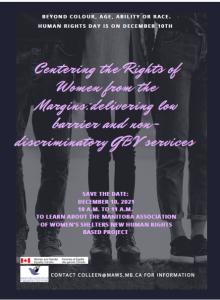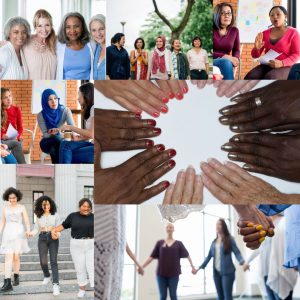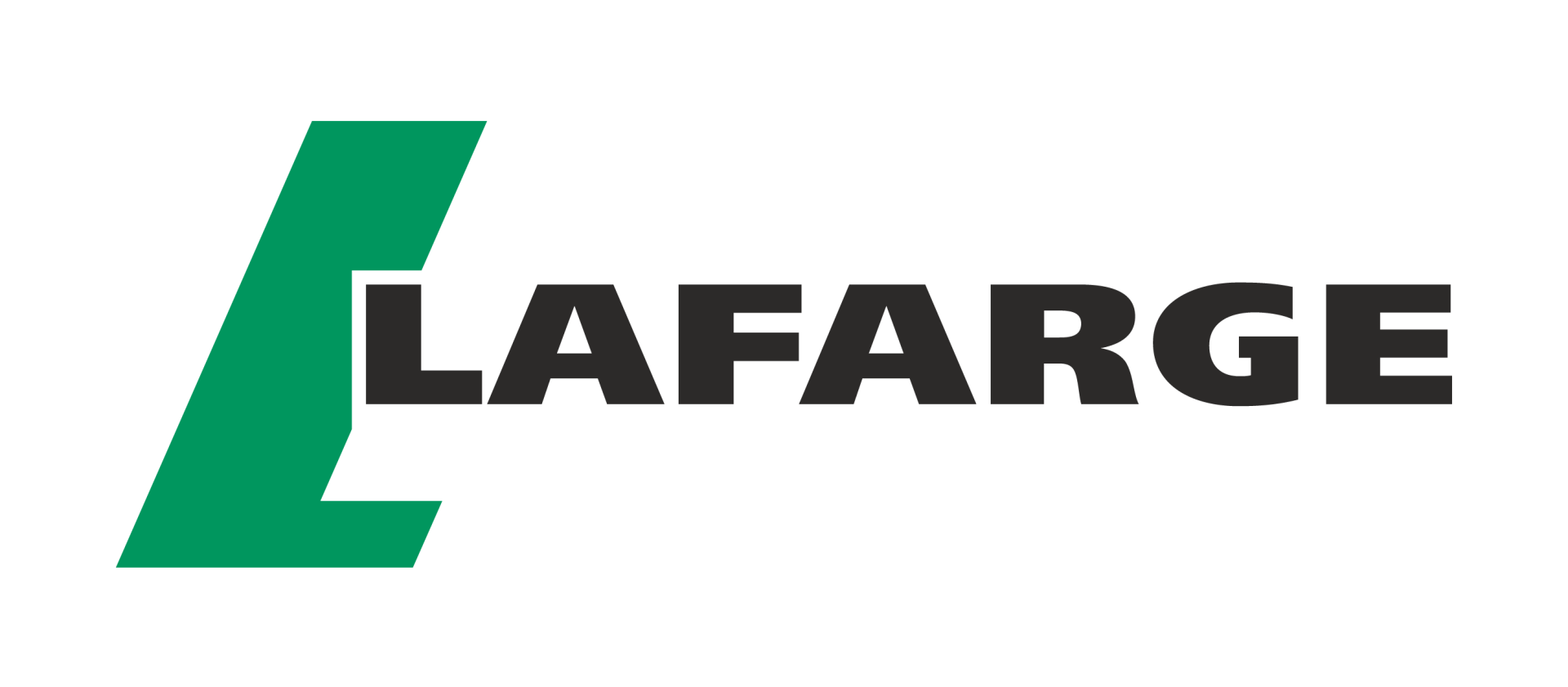Centering the Rights of Women from the Margins
April 29, 2024 update: MAWS is thrilled to announce we are wrapping up our 29-month project: Gender-based Violence (GBV) – Centering the Rights of Women from the Margins. This project aimed to develop and implement a human rights-based approach to GBV services provided by the provincial interpersonal and family violence shelters and associate members that compose their collective, to address the root causes of GBV. The approach has been low-barrier and rights-based, focusing on person-centered and trauma-informed care, best practices, harm reduction, and an anti-oppressive anti-racist framework. The approach is also consistent with the National Inquiry into Missing and Murdered Indigenous Women and Girls’ Calls for Justice, (MMIWG) and will not discriminate on the basis of race and ethnicity, substance use, mental health, sexuality, gender expression, or religion/creed.
One of the outcomes we are most excited about is the development of ten Promising Practices that are foundational in implementing and sustaining low-barrier, rights-based, trauma-informed, person-centered practices throughout provincial GBV shelters in Manitoba. These Promising Practices provide guidelines on Eligibility Criteria; Medication, Substance Use, and Harm Reduction; Advisories/ Care and Cautions; Translation Services; Culturally Responsiveness; CFS Protocol; Working with Individuals with Disabilities; Caring Commitment & Confidentiality; Anti-Oppressive Anti-Racist Practice; Advocacy and Assessment Practices.
MAWS is also delighted to announce we have designed additional training materials available on our website, as well as virtual workshops on anger management styles, conflict de-escalation, boundaries, and self-care.
Understanding the environment of GBV shelters and the difficulty counsellors face in navigating crisis with urgency and immediacy, MAWS has developed a trauma-informed, rights-based, person-centered Counsellor Toolkit. This Toolkit will provide on-the-spot care in a timely manner and will further support shelters in reducing barriers that are so often experienced by individuals accessing GBV shelters.
In conjunction with the Promising Practices, online self-paced training, virtual workshops, and the Counsellor Toolkit, MAWS has developed a Leadership and Equity Toolkit. This Toolkit encompasses information sheets that will support Boards and Executive Directors in reducing compassion fatigue, vicarious trauma, and burnout in their staff; in developing and implementing strategies to recruit staff and board members reflective of the diversity of the communities being served; and in focusing on capacity building and professional development for new and seasoned staff.
We are so grateful to all those who, over the past 29-months, have supported the work done by MAWS to meet the commitments and outcomes embedded in our Gender-based Violence (GBV) – Centering the Rights of Women from the Margins project. We look forward to sharing more detailed information on how this project unfolded and the success we have seen, thus far! Stay tuned – final report coming soon!
December 8, 2021:
Now in our final 6 months of our Gender-Based Violence (GBV): Centering the Rights of Women from the Margins project, made possible by the Government of Canada’s Women and Gender Equality (WAGE) program, we are excited to share some of the achievements we’ve had in delivering culturally respectful, equitable, low-barrier and non-discriminatory GBV services to survivors who all have a right to safety. Some of MAWS’ accomplishments over the course of this project that we’re thrilled to share include:
- The continued development of online culturally relevant and trauma-informed training such as courses on Documentation Training, Ethics for Helping Professionals, Counselling Skills, Tech-Facilitated Violence and Teen Dating, Understanding the Impact of Domestic Violence on Mother-Child Relationships, and on the Crisis and Supportive Listening Line.
- The hosting of webinars on Collective Advocacy, Domestic Violence on Mother-Child Relationships and to commemorate International Women’s Day.
- The hosting of a film festival, screening films that highlighted intimate partner violence, the intersect between trauma and race and the intersect between trauma, race and poverty, intergenerational trauma, the legacy of colonization on Indigenous communities, and the unique experiences of GBV within immigrant communities.
- The co-hosting of webinars through partnership with the Community Legal Education Association (CLEA) on topics such as Coercive Control, Tech-Facilitated Violence and Teen Dating, Intimate Partner Violence, and Cultural Understandings of Intimate Partner Violence: How to Better Support Newcomers and Immigrants. This partnership also allows us to partner with the Manitoba Deaf Association (MDA) to co-host a webinar entitled Healthy or Unhealthy: Recognizing Abuse in Relationships. This webinar was unique in that it offered American Sign Language (ASL) interpretation throughout.
- The development of a careers page on the MAWS website. This website allows individuals to post their resumes for our partners and associate members to view, making the process much more accessible. As well, this website allows our partners and associate members to post available positions within their agencies.
- An online Art Contest for individuals with GBV experience and the creation of an art gallery on the MAWS website. The winner of this contest will have their artwork showcased in our newly updated brochures!
- A drafted Toolkit for counsellors and frontline workers working within the GBV sector. The final version will be available by early next year!
- The development of an upcoming workshop for counsellors working in residential GBV shelters as a response to counsellors experiencing vicarious trauma, compassion fatigue and burnout.
- Supporting interested partners in designing best practices/protocols to incorporate a Harm Reduction approach within a GBV shelter environment.
- The co-hosting of a workshop on Coercive Control with CLEA at Memengwaaa House for Indigenous female youth transitioning out of homelessness.
We are also currently in the process of drafting our project findings and a system change plan to share with our partners and stakeholders within the GBV sector. The work that we have accomplished has also given us ample data and resources to support future system change projects! We are thrilled with what our GBV: Centering the Rights of Women from the Margins project has allowed us to do and are even more excited for what is still to come!

On December 10, 2021 – Human Rights Day – the Manitoba Association of Women’s Shelters (MAWS) is hosting a virtual event to launch our project “Centering the rights of women from the margins.” The project will focus on delivering culturally respectful, equitable, low-barrier and non-discriminatory gender-based violence (GBV) services to survivors who all have a right to safety.
The right to safety is an urgent human right enshrined in International treaties and conventions like the United Nations Declaration of Human Rights and the Declaration on the Elimination of Violence Against Women. The right to safety is also reflected in Canada’s Constitution. Violence can happen anywhere, at any time, and can affect anyone, regardless of their age, background, ethnic identity, gender identity, or income. However, some groups face historic and ongoing systemic discrimination and barriers to justice and care, which make them more vulnerable to violence. These groups include: Indigenous women and girls; women and girls; 2SLGBTQQIA folks; trans women; immigrant, newcomer and refugee women; seniors; people with disabilities; those experiencing mental illness and/or substance use dependence; and women from rural, northern and remote areas, to name a few.
Stopping gender-based violence is key to advancing true equality for all Canadians. However, substantive equality is not achieved by creating “one size fits all” systems of service. Consistent with the MMIWG Call for Justice 4.7, Manitoba needs more inclusive, low-barrier and non-discriminatory GBV services to support women and survivors that present with intersectional needs. With this project, MAWS will take a human rights-based approach and center the needs and lived experiences of survivors while assessing existing program design and service delivery. We will be working with those who have experienced violations of their right to safety and have faced obstacles in accessing service, as well as with service providers to identify gaps in services and build a framework that respects and honours the inherent dignity of every person who seeks to access GBV services.
 Deena Brock, Provincial Coordinator, Manitoba Association of Women’s Shelters, says “The pandemic has increased the risks and severity of gender-based violence, particularly for those already facing barriers that would make them vulnerable to abuse. Gender-based violence is an urgent crisis and now more than ever, we need accessible, barrier-free and non-discriminatory GBV services that acknowledge each survivor’s lived experiences, intersectional needs, and their right to access safety services, no matter where they are in the province.”
Deena Brock, Provincial Coordinator, Manitoba Association of Women’s Shelters, says “The pandemic has increased the risks and severity of gender-based violence, particularly for those already facing barriers that would make them vulnerable to abuse. Gender-based violence is an urgent crisis and now more than ever, we need accessible, barrier-free and non-discriminatory GBV services that acknowledge each survivor’s lived experiences, intersectional needs, and their right to access safety services, no matter where they are in the province.”
MAWS would like to thank the Government of Canada for their support of this project through Women and Gender Equality Canada’s Gender Based Violence Program.
During the pandemic, the rates and severity of gender-based violence increased. Home is not the safest place for everyone. However, everyone has the fundamental right to be safe wherever they are and the right to access safety and safety services without discrimination. It is vital that governments, service providers and communities come together to plan for a post-pandemic future that provides safety for all.
Read the news release for the project here.








